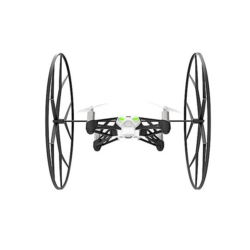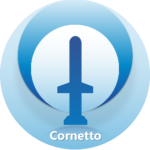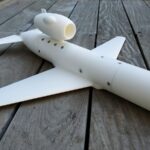The Philadelphia Flight Control Lab serves both the Faculty of Aerospace Engineering and the Faculty of Mechanical Engineering providing lab space for control education. Undergraduate students from both departments take compulsory and elective courses related to control systems engineering, with laboratory components held in the PFCL. Below is a brief overview of the current lab-oriented course offerings.
Faculty of Aerospace Engineering
- Dynamic Systems (084737)
The undergraduate course Dynamic Systems introduces students to the mathematical foundation for modeling and analyzing dynamical systems. An important component of this course revolves around lab activities hosted in the PFCL. The course includes three labs aimed at bridging the gap between theoretical understanding and practical application. The labs include exploring the limits of linearization when modeling dynamical systems, and system identification of a DC motor using input-output data from experimental runs.
- Control Theory (084738)
The undergraduate course Control Theory introduces students to the basic principles of feedback control. Students learn classical controller design methods, including PID control and lead-lag compensation. The PFCL serves as a testing ground for these control designs, as the students are tasked with designing controllers for a DC motor, and for stabilizing an rotary inverted pendulum (see movie inverted_pendulum.mpg). The course includes three labs, focused on exploring the effects of feedback control on a physical system.
- Advanced Control Lab (085705)
 The advanced control lab is for undergraduate students that wish to dive deeper into control design methods for real system. The course currently revolves around the design of control and estimation algorithms for the autonomous flight of a quadcopter drone. The lab is using the Parrot Rolling Spider drone as its testbed (see figure rolling_spider.png). Students begin the course by deriving a complete non-linear dynamical model for the drone, and learn about the sensors and actuators used to begin the process of algorithm design for autonomous flight. Students build complimentary filters for sensor fusion, and multi-loop controllers to stabilize the drone. The course culminates in an autonomous flight for the drone tasked with following a sequence of waypoints.
The advanced control lab is for undergraduate students that wish to dive deeper into control design methods for real system. The course currently revolves around the design of control and estimation algorithms for the autonomous flight of a quadcopter drone. The lab is using the Parrot Rolling Spider drone as its testbed (see figure rolling_spider.png). Students begin the course by deriving a complete non-linear dynamical model for the drone, and learn about the sensors and actuators used to begin the process of algorithm design for autonomous flight. Students build complimentary filters for sensor fusion, and multi-loop controllers to stabilize the drone. The course culminates in an autonomous flight for the drone tasked with following a sequence of waypoints.
- Project 7-8
Project 7/8 is the senior design project that all students within the Aerospace Faculty must complete. This is a team-oriented systems engineering project that is often formed in collaboration with industry partner. Currently, the PFCL is supporting two projects. Cornetto
Cornetto
This year, the PFCL is hosting the Cornetto team. The Cornetto project objective is to design a interceptor missile as a reusable platform for studying different guidance systems inside the missile and tracking systems on the ground.- AEOLUS – Autonomous
 Jet Powered UAV
Jet Powered UAV
The PFCL is also supporting work for the AEOLUS team. This project aims to integrate a jet engine onto an airborne platform. The UAV will be fully autonomous, including take-off and landing, and aims to have a flight time of at least 15 minutes.
Faculty of Mechanical Engineering
- Introduction to Control (034040)
 This course introduces basic principles and tools for designing feedback controllers of dynamical system. An integral part of the course takes place in the PFCL, where students design, implement, and validate their controllers on the DC motor testbed in the lab.
This course introduces basic principles and tools for designing feedback controllers of dynamical system. An integral part of the course takes place in the PFCL, where students design, implement, and validate their controllers on the DC motor testbed in the lab.
- Advanced Control and Automation Lab (034406)